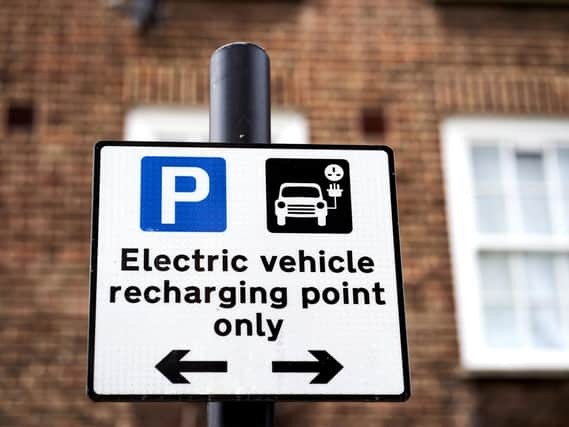Electric car charging provision at motorway service areas and in rural areas is inadequate, says CMA


The Competition and Markets Authority (CMA) said the infrastructure must be improved ahead of the 2030 ban on the sale of new petrol and diesel cars.
It expressed concern about the choice and availability of places to plug in an electric car at motorway service stations.
Advertisement
Hide AdAdvertisement
Hide AdThe rollout of on-street charging by local authorities – which many drivers without off-street parking rely on – is “too slow”, while rural areas “risk being left behind” due to a lack of investment in chargepoints, according to the regulator.
The CMA cited research indicating that difficulties with charging could stop motorists switching to electric cars.
Anxiety over the reliability of chargepoints, comparing prices and paying for charging “risk reducing people’s confidence and trust”, the CMA said.
Andrea Coscelli, the organisation’s chief executive, stated that electric vehicles “play a critical role” in reducing carbon emissions, but the challenges of “creating an entirely new charging network should not be underestimated”.
Advertisement
Hide AdAdvertisement
Hide AdShe went on: “Some areas of the rollout are going well and the UK’s network is growing – but it’s clear that other parts, like charging at motorway service stations and on-street, have much bigger hurdles to overcome.
“There needs to be action now to address the postcode lottery in electric vehicle charging as we approach the ban on sales of new petrol and diesel cars by 2030.”
The CMA made a series of recommendations, including that the Government sets out an “ambitious national strategy” for expanding charging infrastructure up to the end of the decade.
Whitehall should define a clear role for local authorities to manage charging in their area, and establish a pubic body to monitor the sector.
The regulator has also launched a competition law investigation into long-term exclusive arrangements for charging at motorway service areas.